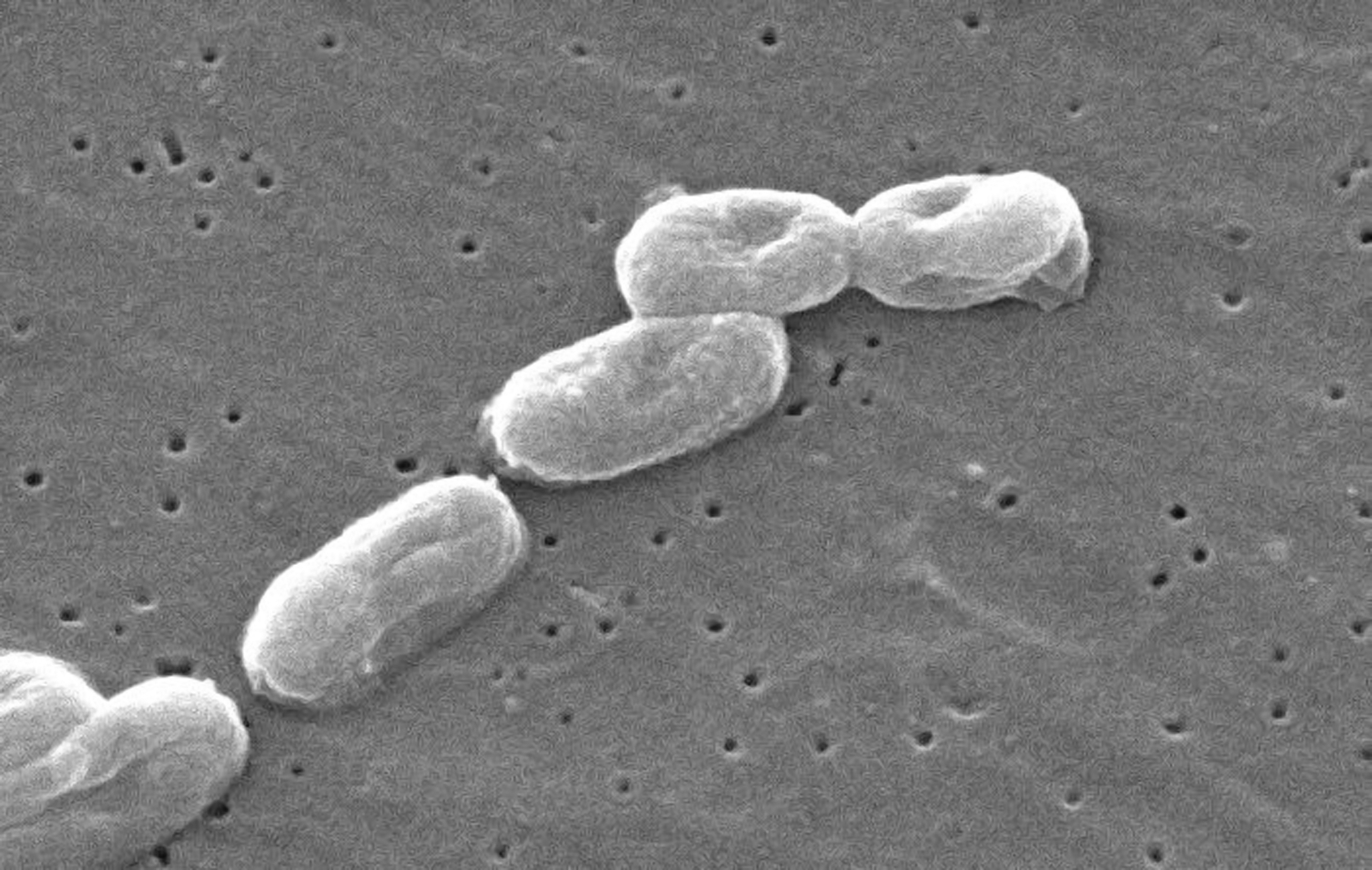#burkholderia_cenocepacia

Burkholderia cenocepacia
Species of bacterium
Burkholderia cenocepacia is a Gram-negative, rod-shaped bacterium that is commonly found in soil and water environments and may also be associated with plants and animals, particularly as a human pathogen. It is one of over 20 species in the Burkholderia cepacia complex (Bcc) and is notable due to its virulence factors and inherent antibiotic resistance that render it a prominent opportunistic pathogen responsible for life-threatening, nosocomial infections in immunocompromised patients, such as those with cystic fibrosis or chronic granulomatous disease. The quorum sensing systems CepIR and CciIR regulate the formation of biofilms and the expression of virulence factors such as siderophores and proteases. Burkholderia cenocepacia may also cause disease in plants, such as in onions and bananas. Additionally, some strains serve as plant growth-promoting rhizobacteria.
Thu 13th
Provided by Wikipedia
This keyword could refer to multiple things. Here are some suggestions: